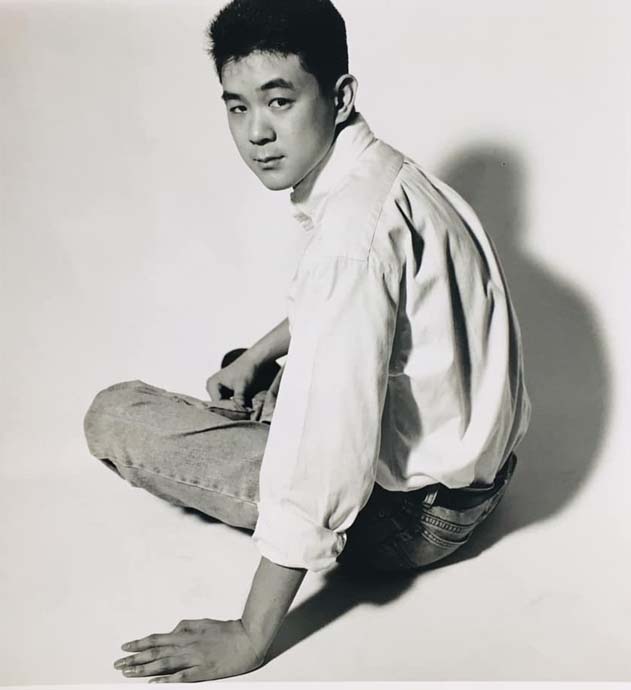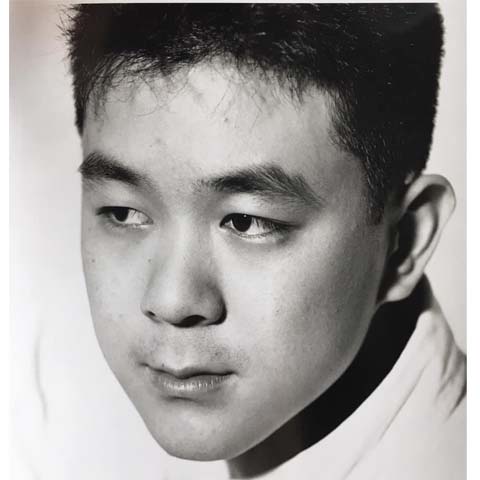
The Filipino Catholic custom of marking the 40th day after death comes from the event we are marking liturgically today (Ascension Day). Tradition holds that Christ ascended to heaven 40 days after the resurrection, so in a quite literal way, Filipino Catholics observe an immediate mourning period of 40 days, somehow believing that the soul is still wandering during this period and ascends to heaven only on the 40th day. Or maybe, it’s some kind of deadline for making it past St. Peter at the gates.
It’s not the kind of Catholicism Clinton subscribed to, but here we are anyway, praying for him. And we do it on this day when we mark the Lord’s ascencion to heaven, an event that we cannot help but imagine very literally. Jesus being taken up to heaven, as if heaven and earth were such disparate realities.
In fact, the Jews did not hold such a dichotomy. Heaven and earth do intersect, to the highest degree in the experience of Jesus. By ascending to heaven, he can then send us the Holy Spirit, and can be “within us and beyond us,” mysteriously holding everything together.
That is what Jesus is doing for us by ascending to heaven. His human body is beyond our material experience, but he is within us and is available to everyone, beyond the narrow confines of his first disciples. He wants us to bring about his kingdom “on earth as it is in heaven.”
I would like to suggest that when the people we love die, they also start being “within us and beyond us.” Clinton is now within us and beyond us. He is within all of us who have been touched and transformed by his writing, his depth of perception, his judgement, his zest for life, his humor.
The theologians tell us that there are three pathways to God: truth, goodness and beauty. There is a lot of the opposite in the world, but wherever and whenever we behold truth, goodness, beauty – heaven and earth meet.
Clinton helped us behold these pathways to God in the world. His writing helped us see beyond mundane realities and behold what is divine in them. From literature to food, from history to politics, from philosophy to popular culture, he brought us to worlds beyond our ordinary experience.
Much has been said about Clinton’s giftedness as a writer, especially as an anthropologist of food. But let me highlight other dimensions of his writing.
History and heritage
First, he is among the few in our generation who feel deeply about our history and heritage as Chinese Filipinos, no doubt due to a deep awareness of his own family’s story, especially his father’s. How blessed we are that a Clinton Palanca wrote about our people’s history, our language, our social institutions, our food.
In recent years, when Tsinoy loyalties were openly challenged, even attacked, Clinton was quick to point out in his unique and always respectful way, the flawed reasoning of pundits, even of National Artists.
When we worked together on the coffee table book Chinese Filipinos, published 16 years ago, I remember being intrigued by his description of Engineer’s Island in what is now Baseco (Tondo), Manila’s version of Ellis Island, where Chinese men were processed and issued proper identity papers. I recently came upon my own grandfather’s landing certificate issued in 1930, and through the lens of Clinton’s writing, I could imagine what that island looked and smelled like.
About the Tsinoy experience, imagine Clinton saying this:
The Chinese Filipino of today is the inheritor of a legacy; not just a legacy of history, but a legacy of culture. In the years that the Chinese lived in the Philippines, somewhere in between the time they changed from being sojourners to calling the Philippines their homeland, they forged a culture that arose from necessity, from uncertainty and, eventually, from a growing sense of identity.
This culture was fleeting and accidental; and as such, too easily forgotten. It must live in memory; but then memory is, in itself, something that must be remembered. First, we forget, then we forget that there was even something to be forgotten.
Perhaps, it is this very sense of loss that gives us the conviction that there was indeed a culture that was created, that there was an identity that was real, and that there is a heritage to be preserved.
We don’t know what the future holds for the Chinese who live in the Philippines, but what we now have is rich and complex and unique; it is a heritage that is too precious to be forgotten.
Marriage and family
Second, marriage and family opened up new worlds for Clinton. One of the joys of my priesthood is watching, often from a distance, couples whose marriages I officiated grow in their love and start raising their families.
It was the same with Clinton and Lourdes as they brought Lucy and William into the world. Clinton’s open letter to Lucy has been shared widely by parents to their daughters, many of them saying that Clinton put into eloquent words what they too would like to tell their daughters.
Again, a short quote from June 2017:
Romance is a wonderful thing, and nothing feels quite like it, except heroin (which you shouldn’t take, need I remind you again), and I hope you have the thrills and highs of falling in love – although heartbreak is also hard. Your mother can help you with this. What I hope you don’t forget is that men and women can be great friends as well. If you see men only as potential mates or not, then the opportunities for wonderful companionship become very thin and narrow.
Faith
Third, faith. Someone asked me if Clinton was a believer. I confidently said Yes, and not only because he got married in church.
Thanks to Eddieboy Calasanz, I found something Clinton published on Valentine’s Day last year entitled, “What It’s Like to be a Modern Man of Modern Faith.” Again, listen to Clinton in his own words:
As I see it, all religion is essentially metaphorical; even if I am a sceptical Christian, I choose to remain within the Catholic Church, because it is a set of metaphors that I am familiar with.
The massed unities of faith, the collective devotion of the religious heart, never fail to inspire awe in me, even if I always stand a little apart from them, not with my lips curled in scorn like an atheist, but because I cannot muster the simple, pure, uncompromised belief. And yet I see that as humans we have a natural urge towards a divine.
The smugness of atheists does not blind me to the fact that they are brave enough to pose difficult questions in an overwhelmingly religious country. They are precious allies in the struggle against bigotry and theocracy; but at a certain point, our paths diverge. I will find no refuge among the pious, however. In the end I find myself cast out alone in the wilderness – just me, and my God.
In the end, we still need Clinton’s words to help us make sense of his passing. In the end, he says, he finds himself cast out alone in the wilderness – just him and his God. Isn’t that exactly how he left us, cast out alone, just him and his God.
I made sure to tell Ellen, and I want to tell Lourdes too – because grief can play tricks on your mind – that Clinton could not consciously, willingly, deliberately do anything that would hurt his parents, his wife and kids, so much. There was a moment of darkness, and all the light of this world was not enough to dispel it at that moment. Accompanied by our prayers, he is now in God’s light, one that will grow ever brighter. It is a light full of love and mercy, and we pray that he has embraced it.
We will not read any more of Clinton’s restaurant reviews, but he is within us and beyond us now. Like the Lord, he has disappeared from our sight, but he is not gone. His writing will continue to inspire us. We will cherish his memory within us, not least so that we can help Lourdes tell Lucy and William about their father. Rest now, Clinton, and look after us from your special table at the banquet of heaven.
Funeral homily for Clinton Palanca, Solemnity of the Ascension, June 2, 2019.
